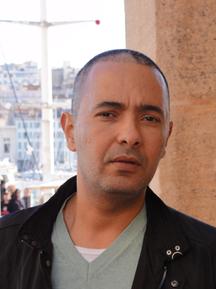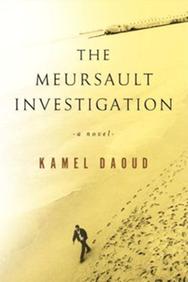
|
|
| photo: D.R. | |
Kamel Daoud is an Algerian journalist who lives in Oran. The Meursault Investigation, his debut novel (reviewed below), revisits Albert Camus's The Stranger, and the death of the unnamed Arab, as narrated by his brother. The book won the Prix Goncourt du Premier Roman and the Prix François Mauriac, and is translated from the French by John Cullen.
Your novel has been referred to as a corrective, a response, or a rebuke to Albert Camus's The Stranger. How do you envision your novel?
The book is both an homage to Camus and a way to analyze the present. It interrogates a writer and interrogates the present through his works.
While reading your book, I paused to reread The Stranger. Did you refer back to the book often while writing?
No, I didn't consult the book again. I wanted to write about an Algerian who remembers reading The Stranger as a love story, as an idea, as a living character.

It isn't a mother/son relationship that is specific to the Arab world. There are many examples in literature of fathers and mothers who deny their grief and let their beloved children bear the burden of their pain
Your book braids moral, political, social and philosophical issues. There's a sentence mid-book that seems to tie them together: "The Other is a unit of measurement you lose when you kill." Can you elaborate on that?
"The other" both reflects who we are and also stands as a limit that can't be violated. When we kill, we also kill a part of ourselves, there is a dimension that disappears, there is no longer a frontier between self and other. Killing brings to the fore that big question of what is life. When we kill someone, we become free, but this freedom is totally useless.
Is it possible to be a writer in Algeria and not write about politics? Do you think it's the duty of a writer of literature to address politics?
The question of politics has not been resolved in the Arab world. There is no legitimate power in Algeria, and the question of what is freedom hasn't been resolved yet. The writer therefore explores this lack of freedom and examines politics in its most absolute and profound sense. Politics is what grants us the right to love, to defend ourselves, to create. How can you love in a forest on fire?
An Islamist imam of questionable stature issued a Facebook fatwa against you for offenses he perceived in the book. Has that changed the way you write or your freedom of movement in Algeria?
I am much more careful than I used to be, but I don't want fear to intoxicate my life, nor be so vain as to believe I am a martyr. --George Carroll

